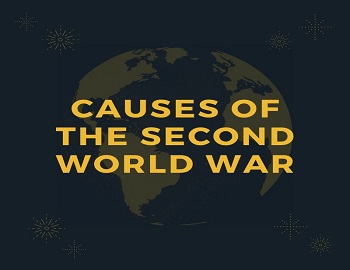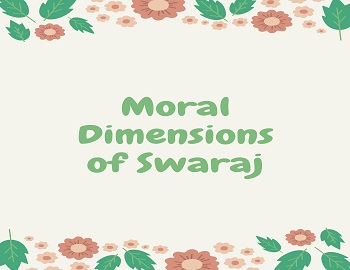Causes for the Disintegration of Delhi Sultanate:
The rule of Delhi Sultans lasted for over three centuries- A.D. 1206-1526. There were many causes that led to the disintegration of Delhi Sultanate. These were:
- The Sultans of Delhi Sultanate believed in the power of the military. They came and conquered India by the force of their armies. But they never tried to win the confidence and love of their subjects.
- Most of the Sultans were religious fanatics. They love to persecute the Hindus. Sultans like Firuz Tughluq and Sikander Lodhi re-imposed Jeziah, the much-hated pilgrimage tax on the Hindus. Consequently, the Hindus hated them and became their enemies.
- The Muslim nobility was also much to be blamed for the downfall of the Sultans. The amirs and the nobles were too powerful and could be kept under control only by powerful rulers like Alauddin Khilji and Balban. Whenever a weak ruler came on the throne they took advantage and rebelled against them. They indulged in conspiracies and court intrigues for their personal gains.
- The jagirdari system revived by Firuz Tughluq was an important factor responsible for the ruin of the Sultans. The jagirdars became very powerful in their territories and asserted their independence.
- The slave system proved disastrous for the later sultans. Ghori had no male successor and so he appointed Qutbuddin Aibak, his very competent and faithful slave, as his heir in India. Balban too was very able and could render invaluable service to the infant Muslim empire. These slaves were bought on their merit. But later rulers like Firuz Tughluq bought most of the slaves out of pity and generosity. These slaves were no good and proved to be a great economic burden.
- The empire was too vast to be controlled in those days when the means of communication were not so developed.
- The invasion of Timur (1398) and the inhuman atrocities committed by him had given a death blow to the already tottering Delhi Sultanate. He massacred over a lakh of Hindus in Delhi. Famous cities like Dipalpur Pakpattan, Meerut, Haridwar, and Bhatnir were plundered and razed to the ground. The Delhi Kingdom lost all its glory and power. The kingdom was confined only to a few districts around Delhi.
- The last Sultan Ibrahim Lodhi also contributed his share for the downfall of the empire. He was proud and insisted on some forms of royalty. He forced the nobles of his court to adhere to certain forms of Obeisance. He harassed and humiliated the nobles in many ways. When the treatment became highly unbearable a group of the discontented party invited Babur to invade Hindustan. Babur seized this opportunity. He defeated and killed Ibrahim Lodhi in the first battle of Panipat (1526). So Ibrahim Lodhi, by means of his unstatesman-like policies and acts drove the last nail into the coffin of the Delhi Sultanate.
Effects of the Disintegration of Delhi Sultanate:
As to the effects of the disintegration of Delhi Sultanate, the one immediate effect was the emergence of a number of kingdoms. For example- in 1336 A.D. Harihara and Bukka founded the Vijayanagar Empire; in 1347 A.D., the Amirs of Daulatabad rose in revolt against Muhammad-bin-Tughlaq and contributed to the establishment of the Bahmani kingdom under Allauddin Hasan or Hasan Gangu at Gulbarga; in northern India Bengal, Jaunpur, Kashmir, Marwar, etc. got independence. The Hindu states of the central provinces had ceased to play any part in the general history of India. The newly formed states of Northern India waged constant wars among themselves either to extend their sphere of influence or settle their boundaries or to acquire a dominant position among the neighboring states.
Talking of the impact of the disintegration of Delhi Sultanate on Indian society, the people in general once again lacked in direction and once again they led their parochial lives. The pan-Indian movements like Sufism, Bhaktism, and the emergence of lingua franca were of no help for the unity and integrity of India.









Comments (No)